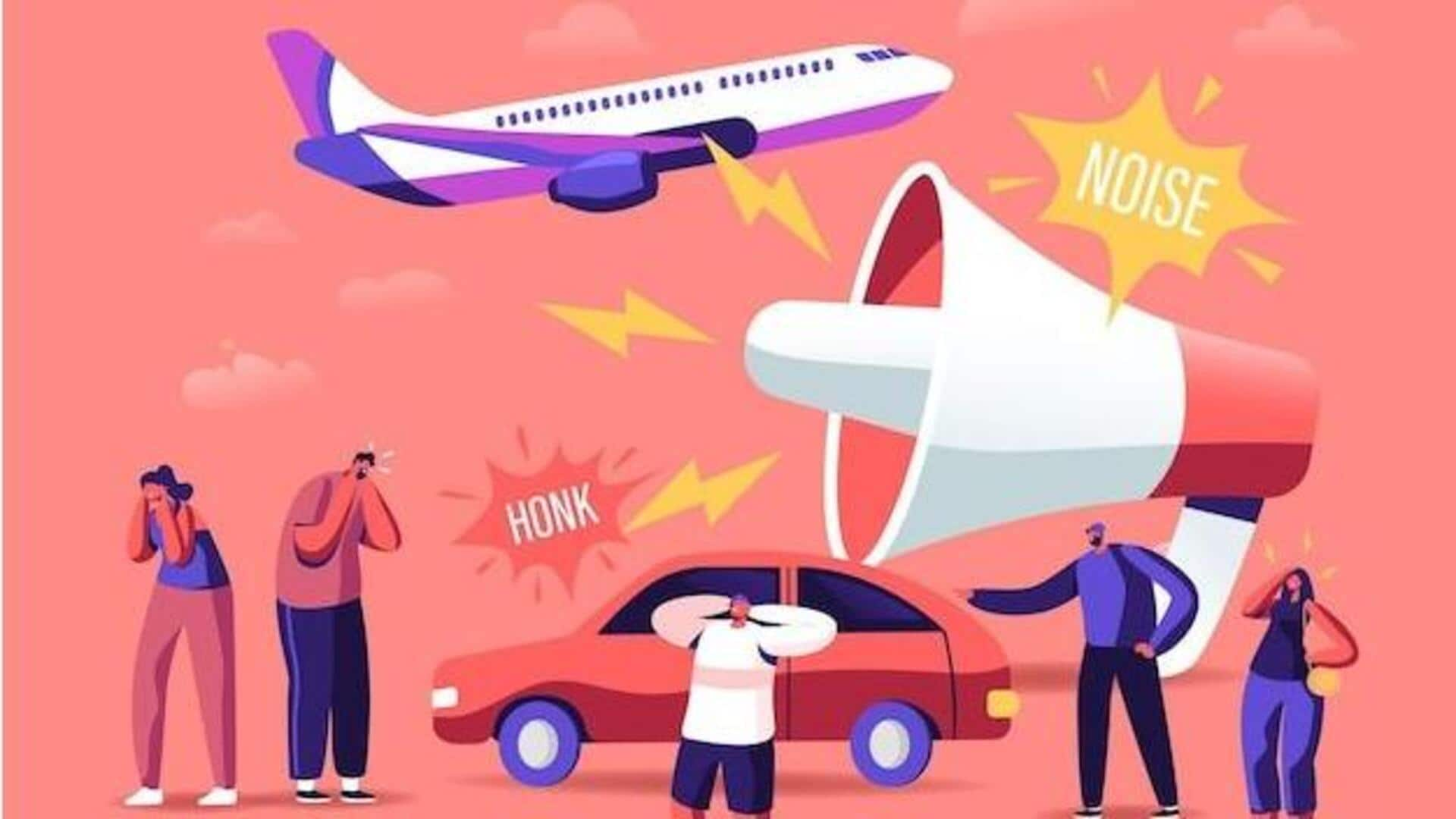
Noise pollution harms 110M people in Europe: Report
What's the story
According to European Environment Agency (EEA), noise pollution from cars, trains and airplanes is harming the health of over 110 million people across Europe. The report highlights that this environmental issue leads to physiological stress and sleep disturbances, resulting in an estimated 66,000 premature deaths each year. It also contributes to heart disease, diabetes and depression cases. The study found that road transport noise affects 92 million people across Europe, railway noise 18 million and aircraft noise 2.6 million.
Widespread impact
Transport-related noise affects 20% of European Economic Area population
The EEA report reveals that noise pollution affects a staggering 20% of the European Economic Area (EEA) population. This is mainly due to transport-related noise. A separate study, which used a slightly lower threshold for harmful noise pollution, found that as many as 40% of people in the UK are exposed to dangerous levels of transport noise.
High-annoyance exposure
Millions suffer from severe sleep disturbances
The report further reveals that 17 million people across Europe are exposed to "long-term, high-annoyance" noise pollution. Nearly five million suffer from "severe" sleep disturbances due to this environmental issue. Even children aren't spared as 15 million kids live in areas with harmful levels of noise pollution.
Underestimated damage
Health impact greater than secondhand tobacco smoke
The health impact of noise pollution is said to be greater than that of secondhand tobacco smoke or lead exposure. The economic cost of this environmental issue is nearly €100 billion a year. However, the researchers believe the health impact figures could be an underestimate. As per World Health Organization's stricter threshold for risky noise pollution, 150 million people across Europe are exposed.
Unmet goals
EU's goal unlikely to be met without further action
The researchers have warned that without further action, the EU's goal of cutting the number of people chronically disturbed by transport noise by 30% by 2030 is unlikely to be met. Dr. Eulalia Peris from EEA said, "Noise pollution impacts our health by keeping our bodies in a constant state of fight or flight, even if we don't consciously realize it."
Mitigation strategies
Measures can be taken to reduce noise pollution
The researchers estimate an annual toll of 66,000 premature deaths, 50,000 cases of cardiovascular diseases and 22,000 cases of type 2 diabetes due to noise pollution. With a mere 3% reduction in the number of people affected by noise between 2017 and 2022, several measures can be taken. These include lowering speed limits for vehicles in urban areas, promoting public transport use, and encouraging walking and cycling to reduce road traffic noise.